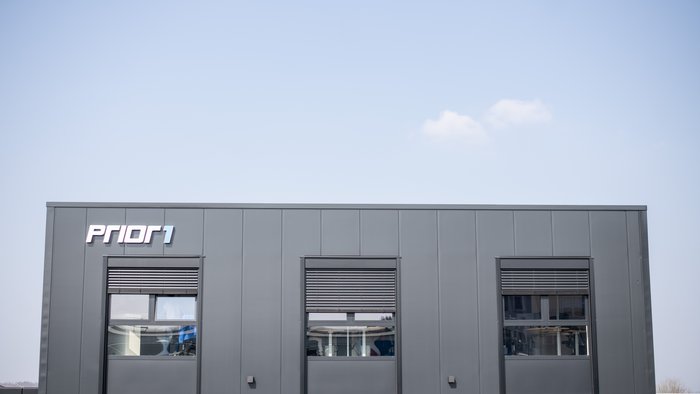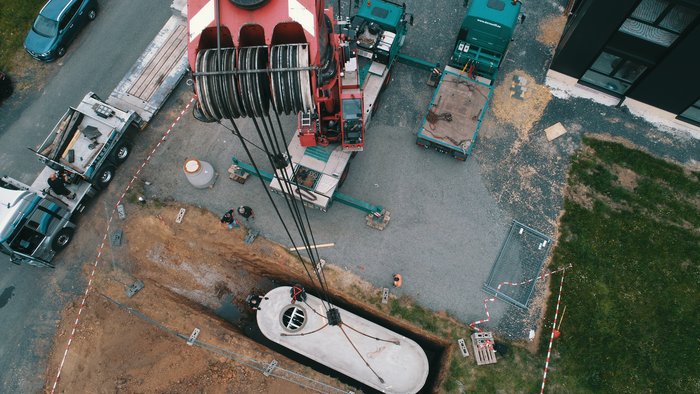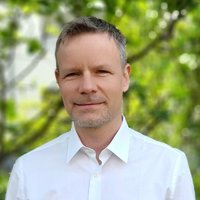Prior1 from Sankt Augustin made a commitment to sustainability early on: The company plans, builds and operates data centers and server rooms with an eye on its carbon footprint and the common good. To this end, it has subjected itself to strict rules.
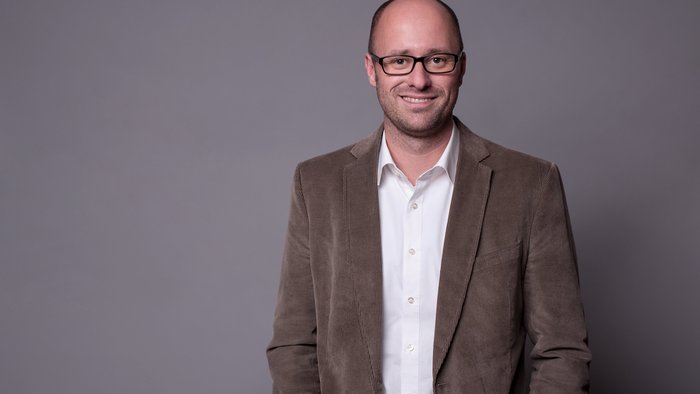
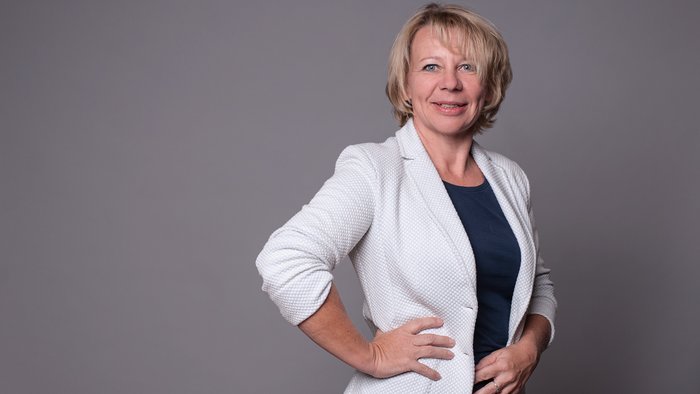
They are the digital heart of a company or public authority: rooms full of “racks”. These racks house the IT infrastructure, such as servers and network components, through which data is received, processed and sent. Without such data centers, there would be no smart industry, no online commerce, no artificial intelligence - and fewer CO2 emissions. Because they are permanently under power and still need to be cooled, data centers are among the biggest energy guzzlers. According to a calculation by the IT industry association Bitkom, these systems consumed around 19 billion kilowatt hours in Germany in 2023. This corresponds to around 0.66% of total energy consumption and almost one percent of total emissions in Germany.
Prior1 builds the shell, the customer brings the servers
Indispensable for digitalization, but problematic in terms of climate protection: data centers mark precisely the interface of the double transformation that the economy is currently facing. Making this as sustainable as possible is the declared aim of Prior1 GmbH. The medium-sized company from Sankt Augustin plans, builds and operates data centers and server rooms. “The idea of ecological sustainability played a role early on in the company's 15-year history,” says Managing Director Tobias von der Heydt.
Typically, Prior1 builds data centers for companies and public clients in their properties. “We build the garage for the car, so to speak: the shell for the IT, including all technical systems for power supply, cooling or fire protection,” explains von der Heydt. Servers and software are supplied by partners or the customers themselves. The orders range from small rooms with a handful of server cabinets to large systems with over 1,000 square meters of space. Entire buildings are often constructed on the customer's property. “We also have containers and IT safes as a rental model,” explains von der Heydt. Prior1 provides the customer with server containers, for example, and receives a flat rate for provision, maintenance and operation.
Growth must not come at the expense of sustainability
Sustainability plays a major role in all of this, confirms Anja Zschäck, Team Coordinator for Marketing and HR at Prior1. “We take equal account of the ecological, social and economic dimensions of sustainability.” But what does sustainable management mean in concrete terms when building data centers? “On the one hand, it's about what we do internally. On the other hand, it's about our solutions for the customer,” explains Zschäck. Internally, for example, the energy supply has been converted. “We cover an estimated 20 percent of our electricity requirements ourselves through our photovoltaic systems. In addition, we have now electrified more than half of our car fleet and charge them with green electricity,” says Zschäck. Employees who want to do without a company car receive a Bahncard 100.
The other side concerns the company's solutions on the market. “Of course, many emissions or resources cannot be avoided,” explains Managing Director von der Heydt. “For example, power supply systems contain batteries and a lot of copper. We pay attention to our suppliers here, but ultimately only have limited influence.” In other aspects, however, much more can be achieved - for example when it comes to advice. “In discussions with customers, we often find that data centers are dimensioned far too large,” reports von der Heydt. The Prior1 consultants specialize in questioning customer requests for “more performance and more space”. “On the one hand, because it would be a waste of resources and inefficient to build a facility that is too large,” explains the data center expert. Secondly, because an underutilized facility could also cause technical problems.
“We don't sell a customer anything they don't need,” summarizes von der Heydt. After all, a data center runs 24 hours a day, 365 days a year. “We're quickly talking about outputs ranging from 100 or 500 kW to megawatts. If I can save a few percent by using efficient systems, that's a huge lever.”
Switching refrigerants: many employees were skeptical
Prior1 has been pulling another lever since the beginning of 2023. For almost two years now, the company has only been offering systems with natural refrigerants such as water and propane for the air conditioning of IT components in all of its projects. “There is also an ecological reason for this,” says Anja Zschäck. “The traditionally used synthetic refrigerants contribute significantly more to climate pollution due to their high CO2 equivalents.” This means that the company is even ahead of European regulation, according to which these climate-damaging substances are to be gradually reduced and eventually banned.
Internally, however, there were initial reservations about taking this radical step. After all, natural refrigerants are more expensive than synthetic ones and involve more planning and safety requirements due to the technical adjustments. “Some colleagues thought: The product that my job depends on will hardly be in demand in the end,” recalls Managing Director von der Heydt. “In the end, we convinced everyone and got them on board. And it turned out that customers are willing to invest in climate-friendly technology.” Today, Prior1 benefits from its pioneering status within the industry.
Prior1 regularly prepares a common good balance sheet
Prior1's transformation efforts are paying off not only in terms of image, but also in terms of climate protection. The company is growing steadily and has been “CO2-compensated” since 2018. “This means that we offset all unavoidable emissions,” explains Marketing Manager Zschäck. Since 2018, Prior1 has been documenting the progress made in so-called common good balances. “We compile all the figures that contribute to our sustainability activities and are audited by an external auditor,” says Zschäck. Prior1 is also the only company in its sector to carry the ECOnGOOD label - a seal of quality that takes social, ethical and ecological sustainability factors into account.
And how is the medium-sized company financing its ecological transformation? “So far, we have been lucky enough not to need any financing partners. We normally finance our projects ourselves,” says Managing Director von der Heydt. In day-to-day business, we otherwise work with the socio-ecological GLS Bank, as “we attach great importance to our partners valuing activities in the direction of sustainability,” says von der Heydt.
About the company
Prior1 specializes in the construction and operation of server rooms and data centers. The company started in 2008 with a team of four people and an office in Siegburg. A few years later, the company moved to its current headquarters in Sankt Augustin. Later, locations in the Westerwald, Kirchheim near Munich and Karlsruhe were added. Today, Prior1 has around 90 employees.
